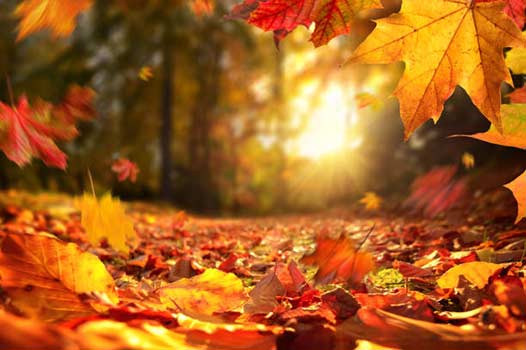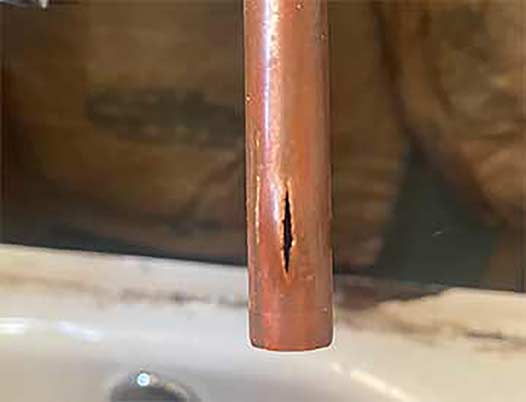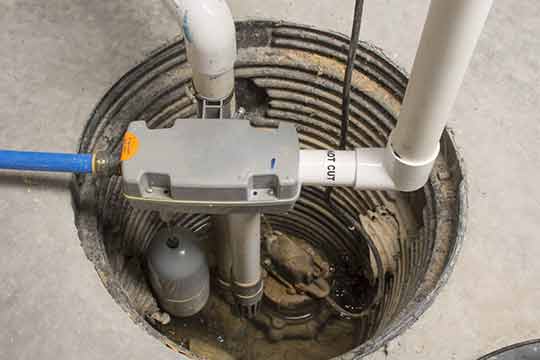
The arrival of autumn brings cooler temperatures, falling leaves, and beautiful colors. However, it also brings certain challenges, especially when it comes to plumbing. Many homeowners are unaware of the potential issues that can arise during this season, which can lead to costly repairs and inconveniences. Here we will explore some of the common plumbing problems that occur in autumn and provide valuable tips on how to prevent them. Whether you are a homeowner or a tenant, this information will help you protect your plumbing system and maintain the functionality of your home.
The Impact of Seasonal Changes on Your Plumbing System
Before diving into specific issues, it is crucial to understand why autumn can be a challenging time for your plumbing system. As temperatures begin to drop, several factors come into play:
- Freezing temperatures: In many regions, autumn marks the beginning of freezing temperatures. When this happens, any water left in outdoor pipes, hoses, or sprinkler systems can freeze and expand, leading to burst pipes and significant water damage.
- Falling leaves and debris: Autumn is known for its stunning foliage, but those leaves can pose a significant threat to your plumbing system. If they accumulate in gutters or downspouts, they can clog the system and cause water to back up into your home.
- Increased rainfall: In some areas, autumn brings an increase in rainfall. If your gutters and downspouts are not properly maintained, excess rainwater can overflow and create structural damage to your home.
Now that we understand the potential issues, let’s explore some of the most common plumbing problems that you may encounter during the autumn months.

One of the most common and damaging plumbing problems in autumn is frozen or burst pipes.
1. Burst or Frozen Pipes
One of the most common and damaging plumbing problems in autumn is frozen or burst pipes. When temperatures drop below freezing, any water-filled pipes exposed to the cold can freeze and expand. This expansion puts tremendous pressure on the pipes, causing them to crack or burst. The damage can extend beyond the pipes themselves and impact your walls, floors, and belongings.
To prevent frozen or burst pipes:
- Insulate exposed pipes: Identify any pipes that are located in unheated areas, such as basements, crawl spaces, or attics. Use pipe insulation or heating tape to protect them from the cold and burst pipe emergencies.
- Drain outdoor faucets and hoses: Disconnect and drain all outdoor hoses to prevent water from freezing inside and potentially damaging the connected pipes.
- Keep the heat on: If you plan to be away from home during cold weather, set your thermostat to a temperature above freezing to ensure the pipes remain warm.
- Open cabinet doors: For sinks located against exterior walls, open the cabinet doors to allow warm air to circulate around the pipes.
2. Clogged Gutters and Downspouts
Falling leaves and debris can accumulate in your gutters and downspouts, causing them to become clogged. This prevents water from flowing freely and can lead to serious water damage if left unaddressed. The weight of the debris-filled gutters can also pull away from the house, causing structural damage.
To prevent clogged gutters and downspouts:
- Clean your gutters regularly: Remove leaves and other debris from your gutters and downspouts at least twice a year, ideally before autumn and after the leaves have fallen.
- Install gutter guards: Consider installing gutter guards to prevent leaves from entering and clogging the system. This will minimize the need for frequent cleaning.
- Trim tree branches: If you have trees near your house, trim any overhanging branches that may deposit leaves directly into the gutters.

Regularly clean and maintain your sump pump to remove any debris that may hinder its functionality.
3. Sump Pump Failure
A sump pump is a critical component in many homes, especially those with basements or crawl spaces prone to flooding. In autumn, heavy rains can overload your sump pump and cause it to fail. This can lead to basement flooding and extensive water damage.
To prevent sump pump failure:
- Test your sump pump: Before the rainy season, test your sump pump to ensure it is in proper working order. Follow the manufacturer’s instructions for testing.
- Install a backup power source: Power outages during storms can render your sump pump useless. Consider installing a battery backup sump pump or a generator.
- Maintain your sump pump: Regularly clean and maintain your sump pump to remove any debris that may hinder its functionality.
4. Septic System Issues
Autumn and heavy rainfall can place significant stress on septic systems. Excess water from heavy rains can oversaturate the drain field, leading to system failure and costly repairs.
To prevent septic system issues:
- Conserve water: Be mindful of water usage during heavy rainfall periods. Minimize additional strain on the septic system by limiting unnecessary water usage.
- Fix leaks promptly: Address any leaks or dripping faucets in your home to prevent additional water from entering the septic system.
- Regularly pump your septic tank: Scheduled septic tank pumping service is essential for maintaining a healthy septic system. Contact a professional to determine the appropriate frequency for your tank.
As autumn heralds cooler weather and beautiful landscapes, it is important to be aware of potential plumbing problems that may arise during this season. Understanding the impact of seasonal changes on your plumbing system is the first step towards prevention. By implementing the preventative measures outlined in this article, you can safeguard your home and avoid costly repairs. Remember, if you encounter a plumbing issue that is beyond your capabilities, it is always best to call a professional plumber to resolve the problem.